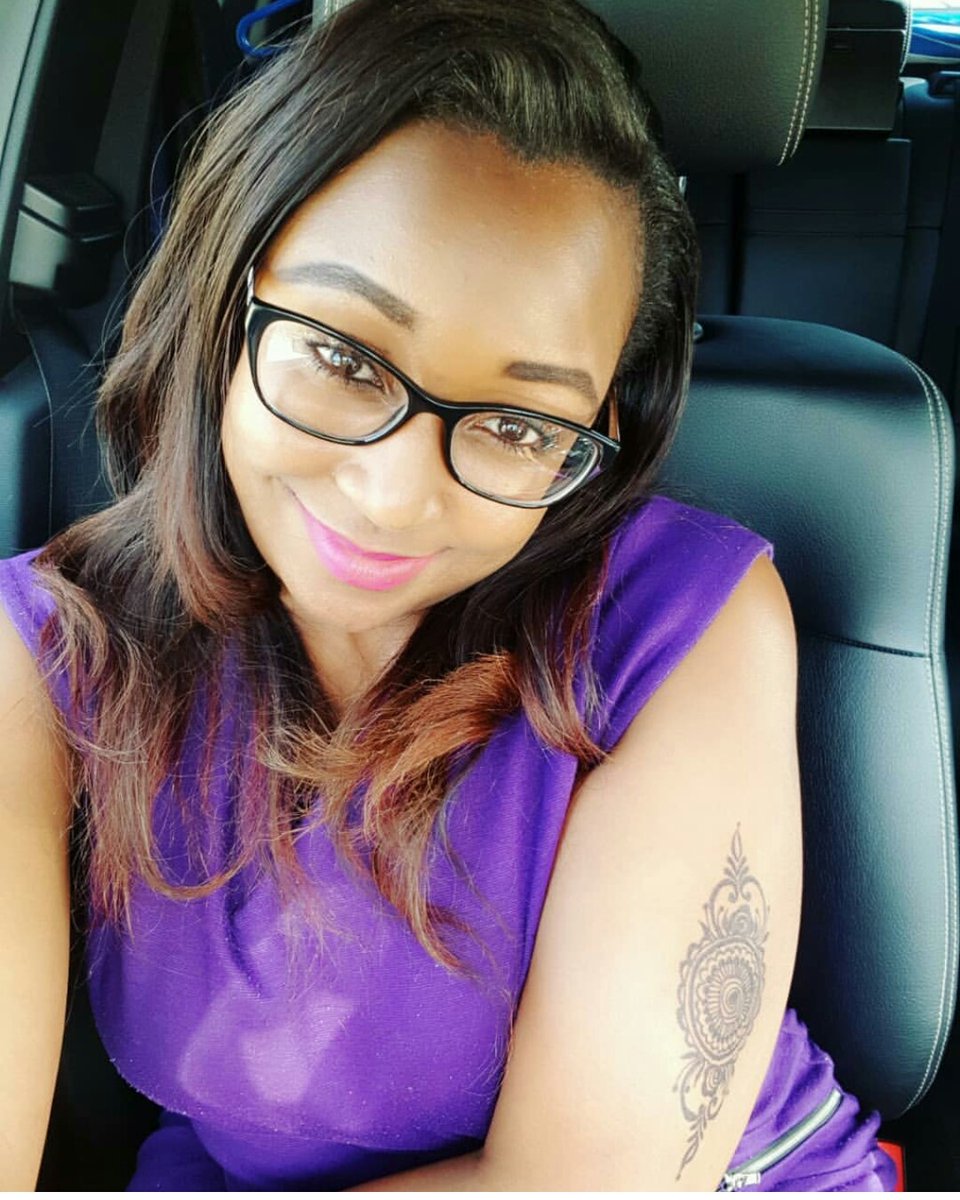Betty Kyalo celebrated her 30th birthday on Friday and the K24 news anchor dedicated the Upclose segment of the Weekend With Betty to delve into her personal life. Milele FM morning show host Jalang’o had to step in as a stand-in interviewer.
Apart from issues surrounding her failed marriage to NTV editor and anchor Dennis Okari (a relationship her mother said she had disproved), he fling with Mombasa Governor Hassan Joho and her Flair by Betty beauty parlour, one of the most sticking points was whether she was lying about her real age.
“There is this story that has been going on: How old is Betty?” Jalango posed. To which he mother Julia Ngii replied: “Betty was born in 1989 11th March. You can count. At 8.30 a..pm).”
“That is the time you became alive!” her younger sister, Mercy, chipped in during the interview at her Nairobi residence. Her younger sister, Gloria, also took part.
In a video clip of a previous interview, which did the rounds on the blogs and social media, the former KTN newscaster had indicated she was a 17-year-old Form Three student, which would have meant she turned 34.
But she not says she was weather-beaten ( nilikuwa nimebeat) at the time and that she had which made her to get her age wrong. Her mother defended her saying one is wont to suffer a slip of the tongue.
However, the fact that Betty had to bring in her mother to confirm her real age, shows how much women seek to lie about their age.
While for men, life starts at 40; for women, 40s is the new 30s. There is talk of a former radio presenter who is in her 40 but who always seeks to give the impression she is in her 20s. She celebrated her 26th birthday for four years.
So, what is in an age bracket? Was Kyalo’s mother reading from a prepared script?
Betty is not the first celebrity anchor to face questions over her real age. When former KTN news anchor Joy Doreen Biira announced in 2011 that she was about to turn 26 on her Facebook page, one of her followers replied: “Twenty-six years I hear, Gals, gals, I am adding two.”
However, Biira said in a past interview with Uganda’s New Vision she has no problem revealing her age.
“I find no problem saying how old I am, I have done it before, still doing it and would continue to do so,” she said.

For most young women, no question is more likely to get them fidgety than to ask her about her age. Most brush them off or simply answer: “Don’t ask me about my age, I am a woman.”
However, according to journalist Sarah Ndung’u, there is no reason for a woman to lie about her age since you can only do so for so long.
“It is a futile attempt. Very soon your hair will begin turning white. Ageing is an inevitability, it would soon catch up with you. Even when you are going to give birth, will you also lie to hospital staff?” she posed.
According to research, some women lie about their age and invest a lot in maintaining younger, curvy looks in order to maintain their value and also to feel appreciated. Even more the most liberal societies, young women are more likely to seek to maintain their looks even as they hit the 30s and 40s. Some are comfortable stating their age but the trend changes when they hit the mid-20s.
While some are born with good genes that see them avoid tale-tell signs of aging such as wrinkles and, others have invested in strategies such as regular exercises, consuming a balanced diet rich in fruits and vegetables, drinking lots of water and avoiding drugs to maintain younger looks. Others invest in cosmetics, anti-aging products and even plastic surgery to look younger.
Most are women especially those in their 30s and 40 go, who feel appreciated or even flattered every time their good looks are complemented. In a youth-driven society, men in their 40s and 50 are unlikely to go for women in their 40s. They would prefer younger ones, who are still fresh and beautiful. Young age also comes with a degree of innocence.
Read: In Kenya, Cambridge Analytical sounded unheeded alarm bells
Women and girls living in regressive societies are also forced to do so because elderly relatives do not want her to lose her value in terms of getting a marriage partner. In addition, they would love her to start going slow on desires and start bearing children.
In some African societies, grandmothers and aunties put young women under undue pressure.
Watch “Upclose with Betty Kyalo on #WeekendWithBetty” on YouTube https://t.co/YrTeQyO2so https://t.co/Ogh44vqMaI
— JOSHUA MUTUA ?? (@joshuamutua10) March 15, 2019
Others lie about their age because they have set targets for themselves whether it is career or marriage but when they are not met, they decide to reduce their age.
Some hide their age to make a relationship work when they discover the man they love is older.
But it is not just women who hide their real age. Some men especially those with younger looks also lie to maintain their value.
A story is told of a teacher who was asked about his age by a student and he retorted that it was not part of the syllabus.
In the past, it was unusual for people – both men and women – to lie about their age in order to stay longer in a job, especially in the public service. As a result, you find old men and women competing for the same jobs with the young generation.
Lying about one’s age is also prevalent among politicians and footballers, especially Africans eyeing lucrative professional careers in European leagues.
Among millennials, age is, however, fast losing its value as a factor in society as most women are laying emphasis on education and career growth. Such strong women do not allow themselves to be worried about their age, skin complexion or physical appearance.
According to a recent US survey, 61% of women don’t allow their looks to determi ne how old they feel.
The nationwide survey conducted by AARP, titled Mirror/Mirror: AARP Survey of Women’s Reflections on Beauty, Age, and Media TM , indicated that only a few (29%) say their greatest anxiety about aging is their appearance while 76% of women accept their age and 60% even embrace it. Of those who believe they are beautiful at any any, 60% were boomers, 60% generation X and 63% Millenials.
Read: More than meets the eye in Uhuru’s hug with TV presenter
The survey, which was conducted last year questioned 2,000 US women ages 21 to 72 on their perceptions of the way women are depicted in the media. They were also asked how these depictions inform their self-image, lifestyle and purchasing decisions.
Among the survey’s key findings were that 61% of women say they do not feel represented by images of women in media; 58% of women say they are more likely to purchase products from brands that use models who look like them in their advertising while three-quarters of women say they like ads that include women of various ages and wish they saw more authentic portrayals of females.
“The results of this survey confirm something we’ve suspected all along: Women want to see themselves reflected in advertising and other types of media in authentic ways, and they’re more likely to buy products from advertisers who use images of women who are a variety of ages,” said AARP Senior Vice President and Editorial Director Myrna Blyth.






![President William Ruto during the launch of Climate WorX in Nairobi. [Photo/PCS]](https://businesstoday.co.ke/wp-content/uploads/2024/10/President-William-Ruto-during-the-launch-of-Climate-WorX-in-Nairobi-1-e1727761613802.png)





I like the helpful information you provide in your articles. I will bookmark your blog and check again here regularly.